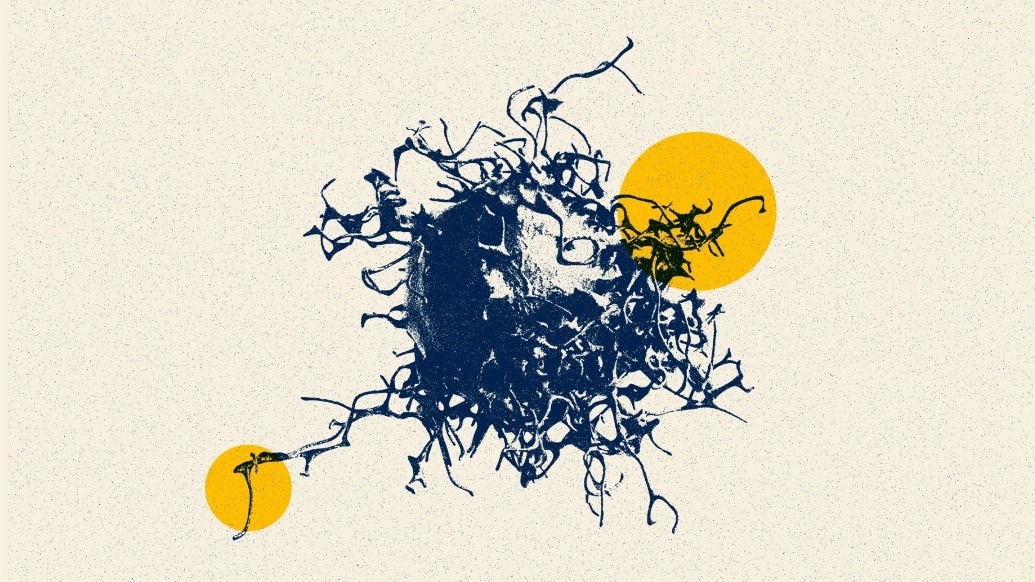Reviewed by Lexie CornerMay 29 2025
Recent research suggests that the herpes virus, typically known for causing infections, may have potential as a tool in cancer treatment.

Image Credit: Jacob Dwyer, Justine Ross, Michigan Medicine
Researchers are exploring how the herpes virus might be used to improve cancer treatment. The idea is based on the fact that viruses like herpes have evolved ways to hijack cellular machinery and trigger certain signaling pathways in cells. These same strategies could potentially be adapted to boost immunotherapy against diseases like cancer.
T cells are the body’s first line of defense against infections and cancer, as they can destroy infected or cancerous cells. Scientists have been working for years on ways to train these immune cells to better fight disease. One such approach is CAR-T therapy, which uses a patient’s own T cells to target certain types of cancer.
However, the environment inside tumors often weakens T cells, limiting their ability to survive and function effectively.
Researchers at the University of Michigan found that the herpesvirus saimiri, which naturally infects the T cells of squirrel monkeys, produces proteins that can activate key pathways that support T cell survival.
Led by Dr. Adam Courtney from the Department of Pharmacology and the Rogel Cancer Center, the study tested whether a modified viral protein could activate transcription factors known as STAT proteins, which are important for T cell function.
This approach builds on earlier findings showing that immune signaling molecules like interleukin-2 (IL-2) activate the JAK-STAT5 pathway, which helps T cells kill cancer cells more effectively.
The team designed a version of a herpesvirus protein, called tyrosine kinase interacting protein, to bind with a molecule called LCK (which is active in resting T cells) and guide it to activate STAT5.
Using this method, they found that directly activating STAT5 helped maintain T cell activity in mouse models of melanoma and lymphoma.
These results suggest a new direction for immunotherapy - using genes from viruses or other organisms that influence human cells to enhance immune responses against cancer.
Source:
Journal reference:
Zheng, Y., et al. (2025) An engineered viral protein activates STAT5 to prevent T cell suppression. Science Immunology. doi.org/10.1126/sciimmunol.adn9633.